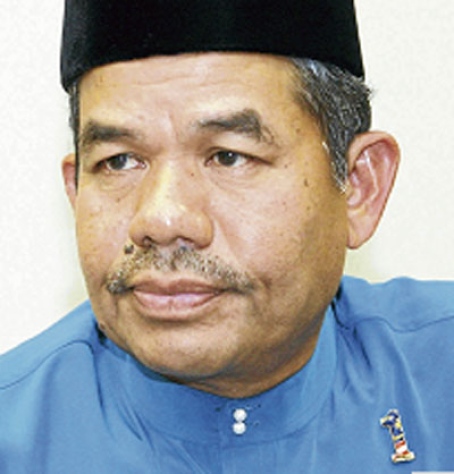Always challenging the status quo
Professor Tan Sri Dato' Dzulkifli Abdul Razak
Opinion: Comment
New Sunday Times - 23-06-2012
IF there is one thing that I will remember about Tan Sri Mohd Sidek Hassan, the chief secretary to the government, after he retires today it is his clarion call “to challenge the status quo.” This is not mere lip service.
Opinion: Comment
New Sunday Times - 23-06-2012
IF there is one thing that I will remember about Tan Sri Mohd Sidek Hassan, the chief secretary to the government, after he retires today it is his clarion call “to challenge the status quo.” This is not mere lip service.

During Chief Secretary to the Government
Tan Sri Mohd Sidek Hassan’s term,major
higher education issues were mostly sorted out.
There are many examples that one can quote of how his words translated into reality, and resulted in making the difference.
His passion is today more generally associated with the word “transformation” — that is making changes that resulted in making a difference, not those business-as-usual changes of little consequence.
In the higher education sector, Sidek has been very instrumental in changing many situations that have been left standing at the mercy of bureaucracy and indecisiveness. The Committee of Vice-Chancellors and Rectors benefited much from the many special meetings with him to resolve such overdue issues and even pre-empt some new barriers. He seems to have the knack to spot where the problems lay and almost spontaneously suggests solutions for many of them.
Needless to say, the special meetings with him are popular, and invariably send positive signals that challenging the status quo can be constructive, if there is an earnest desire to think out of the box.
Over time, the meetings became less frequent because not only were the major issues mostly sorted out, but others were more courageous to challenge the status quo in a meaningful way. This is the leading by example that Sidek has successfully demonstrated, subtly though it may be.
Personally, I recall it was on Jan 24, 2008, during the meeting of the Heads of Statutory Bodies at the Universiti Sains Malaysia campus in Penang, that his mantra to “challenge the status quo” created a clear impact. Not long after that the Ministry of Higher Education initiated the Accelerated Programme for Excellence (Apex) which in essence is about challenging the status quo.
I would go as far as putting on record that the drive to “grab” the Apex university status, for USM, is in no small way due to the same mantra. Indeed, USM’s bid is about “Transforming Higher Education for a Sustainable Tomorrow!” The rest is history.
In fact, the stance that USM took was not merely challenging the status quo but has been regarded as disruptive as suggested by Clayton Christensen and Henry Eyring in their book, The Innovative University. USM’s Apex agenda on meeting the needs of the poor is a unique example.
But this is not all. Sidek continued to lend his support in navigating through the Apex journey when we came to a hurdle. He gave his time and mind in attempting to surmount such barriers, akin to the Malay problem: “menarik rambut dalam tepung” (solving a problem delicately so that both sides are happy with the outcome).
Therein he is consultative, and patient in listening to views from the rest before coming to a final conclusion.
Often, too, he has a number of anecdotal experiences to share in enriching such decision-making processes.
He is trusting and trustworthy which is one critical element for any transformation to thrive by challenging the status quo. He is far from a “control-freak” who refuses to let go and renders changes insignificant. On the contrary he is the initiator of major changes!
To be sure, challenging the status quo has its own risk too! Firstly, when the trust given is abused down the line, and not followed through.
Sidek is not immune to this which can result in some negative outcomes instead — perhaps this is the inherent risk that makes many remain trapped in the myopic boxes. Secondly, the power-play that often scuttles the execution of the decisions made even at the highest levels at times. Fortunately, Sidek is experienced enough to deal with such unpleasant circumstances.
Thirdly, when the status quo comes back with a vengeance, especially when the transformation processes directly threaten their vested interest or egos. This perhaps is the most fatal because it can roll back the transformation process as such.
Be that as it may, Sidek is no ordinary chief secretary. He is a game-changer. His feats and achievements will remain as benchmarks for a long time to come.
All this because in his own words: I don’t want to look back and say, why did I not make the difference when I was in the position to do so!
That sincere and profound thought will be remembered by all those who believe that work is indeed a calling — just like Sidek did.
Thank you, sir, for all that you have done to serve the nation and its people beyond the normal call of duty!
- The writer is the vice-chancellor of Albukhary International University
